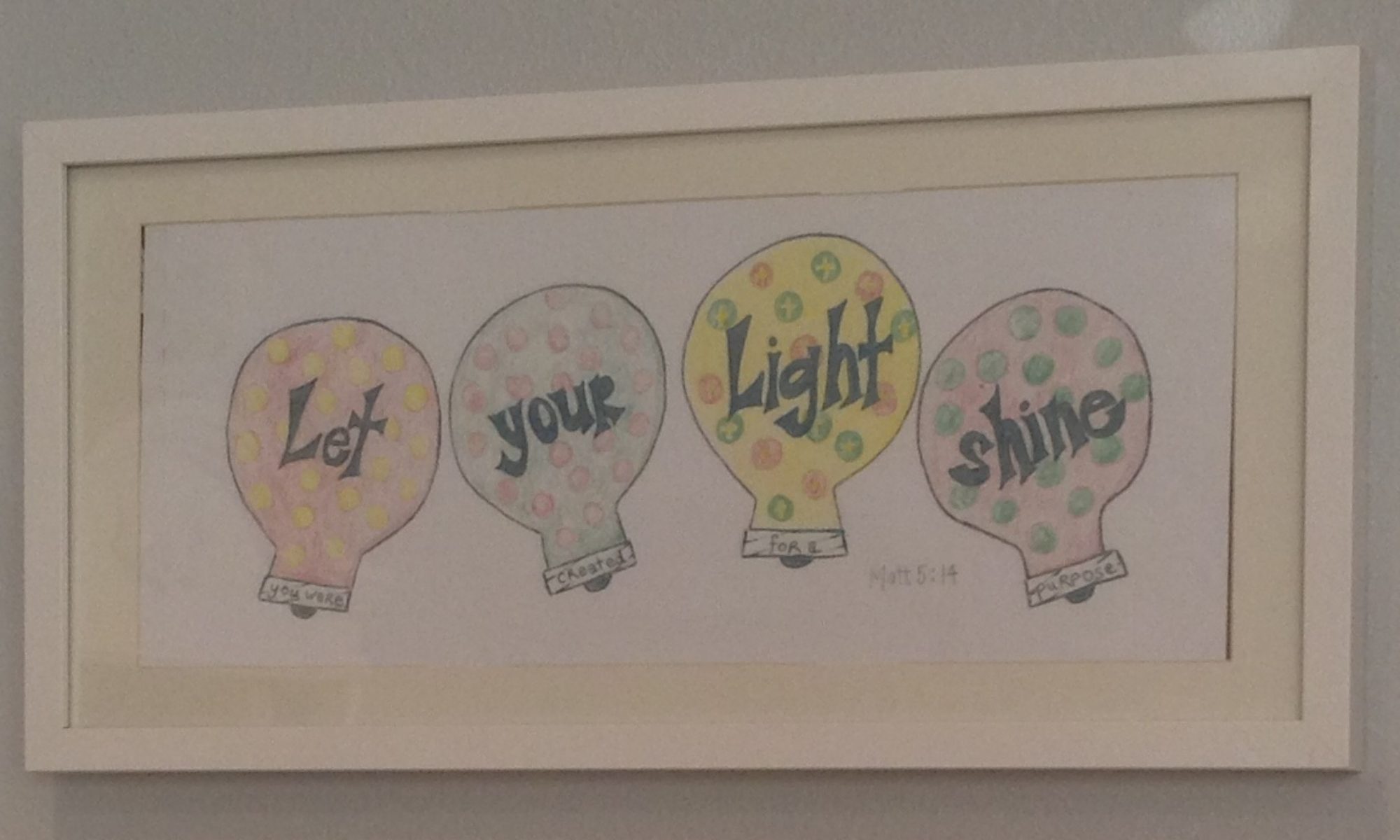Morgan, my sweet cousin, is only 12. TWELVE. She is no stranger to struggle and suffering. However, her strength of character and will far surpasses any adult I know. She has the maturity of a beautiful woman, but with child-like faith. Bright. Shining. Hopeful.
I love you Morgy.

She wrote this speech to give to her co-op group. I hope it inspires you as much as it did me.
Suffering
Why? Why does God allow suffering? No one wants to suffer. It seems everyone would rather live their happy lives without it. In my opinion, if God didn’t care about you, He wouldn’t let you suffer. He takes the time to let you suffer because He is working in your heart and wants to help you.
Most people think suffering is a curse, something that you want to avoid. But I have experienced deep pain and suffering, so I sorta know what its like. But here is a story that touched my heart:
A friend of mine sent me a link to a video one day, I clicked on it and it was called, “Clouds” by Zach Sobiech. It was a story of a boy with Osteosarcoma. Osteosarcoma is a cancerous bone tumor that develops in children. Zack has endured several surgeries and months of chemotherapy. At the end of may in 2012, he had cancer in both his pelvis and his lungs. There are no effective treatments left. He has a matter of months left to live. His response is to greet every day with joy and hope. This boy is an inspiration to me. I think God does definitely care about him in the midst of his suffering.
Secondly, God lets you suffer because suffering is part of the plan to make you into something wonderful. You aren’t going to have a perfect life, that’s the reality. Here is my story:
I was eight years old when I first discovered my allergies, I was at irregular weight for an eight year old… People weren’t what you would call “friends” with me… I prayed and prayed and hoped and wished but my allergies only got worse… I had no friends. On top of that I was being bullied… no one wants to be bullied, I was bullied for 3 years… When it finally stopped. I was 11. Though I tried not to be bitter, my allergies got worse and worse and all I wanted to do was give up… I was starting to doubt that God loved me, that I even believed He existed. I didn’t want to go to church. I didn’t look like a normal eleven year old. I was angry at the world, at God, at myself. One night I was in my room mad at everything, when I heard God say to me, “What will you have if you give up? I let you into this because I have a plan…” I told my wonderful mom, who has helped me through every minute and every second of my pain. My mom would always say, “God has a plan, and he sure loves you or He wouldn’t bother to put you through this.” And I realized that it wasn’t my allergies that were making me mad, it was not having God entirely in my life. Psalm:42 1-2: “As the deer pants for the water brooks, so my soul pants for you, O God. My soul thirsts for God, the living God.” I started fresh again and when I discovered I had Pre-diabetes, sure, it was terrible, I wasn’t very happy about it, but I had come so far and I didn’t want to give up, God was working in my life and he loves me! I have changed, though I don’t look the way I would want, be the size, shape, and weight I would want, God is working on the inside, and it’s the inside that counts. Though I was hurting, God helped me through.
Proverbs:3:5-6: “Trust in the Lord with all your heart, and lean not on your own understanding; in all ways acknowledge Him, and He shall direct your paths.
God gives you nothing you can’t handle without him. If you couldn’t handle it, then He wouldn’t have given it to you in the first place. He loves us all! No matter how much you are feeling burdened with un-trust and pain. He WILL help you through! He uses suffering to work in your heart. It will make you a stronger person, a stronger Christian, and have a stronger relationship with God.
So of course suffering is hard, you should not turn away from God if you are struggling. I read the bible and it gave me hope. Joshua:1;9: “Have I not commanded you? Be strong and of good courage; do not be afraid, nor be dismayed, for the Lord your God is with you wherever you go!” So trust Him. God is going to make you stronger. No matter how hard or long it is, He has a glorious plan for you, and suffering is just a piece in the gigantic puzzle.
May God continue to bless and keep her in the PALM OF HIS HANDS.



























